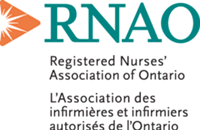Government's workplace violence legislation falls short of protecting women
The Registered Nurses' Association of Ontario (RNAO) says Bill 168 (the Occupational Health and Safety Amendment Act) will do little to stop forms of violence such as teasing, gossiping or bullying that can be just as dangerous as physical assaults. The association would have preferred a broader definition of workplace violence to include forms of harassment because statistics show violence in the workplace affects nurses, many of whom are women, disproportionately. An estimated 50 per cent of health-care workers will be physically assaulted during their professional careers, and nurses are three times more likely to experience violence than any other professional group.
"The reality for women in Ontario is that teasing, gossiping, bullying and harassment are also common forms of violence. This legislation doesn't recognize that. Women have a right to a safe working environment that is free of any and all aggression," says RNAO
Fucile says the association suggested the government adopt a wider definition such as the one incorporated in RNAO's best practice guideline on Preventing and Managing Violence in the Workplace, which describes violence as a multi-dimensional phenomenon involving the misuse of power and includes all forms of harassment, bullying, intimidation, physical threats, assaults, robbery and other intrusive behaviours.
Another key improvement missing in the legislation is better whistleblower protection for those who report incidents or potential incidents of workplace violence or harassment. "We know nurses experience threats, intimidation, and other forms of physical violence. They put up with it because they fear losing their jobs, escalating the conflict or confrontation. Nurses deserve better. You can't provide quality patient care if you can't rely on a safe environment in which to practise," says Irmajean Bajnok, Director of RNAO's International Affairs and Best Practice Guidelines Program.
RNAO says Bill 168 is in response to recommendations made by a coroner's jury that examined the death of Windsor nurse
"We know from the Dupont case that power differentials jeopardize both patient and workplace safety," Grinspun says. "With the memory of Lori and her family clearly before us, we urge the McGuinty government to immediately address the shortcomings in Bill 168 through further legislative changes so that nurses and other women are afforded the protection they deserve in their places of work."
The Registered Nurses' Association of Ontario (RNAO) is the professional association representing registered nurses wherever they practise in Ontario. Since 1925, RNAO has lobbied for healthy public policy, promoted excellence in nursing practice, increased nurses' contribution to shaping the health-care system, and influenced decisions that affect nurses and the public they serve.
For more information about RNAO and its BPG on Preventing and Managing Violence in the Workplace, visit our website at www.rnao.org. You can also check out our Facebook page at www.rnao.org/facebook or follow us on Twitter at www.twitter.com/rnao.
For further information: To arrange an interview with a nurse, please contact: Marion Zych, Director of Communications, RNAO, Phone: 1-800-268-7199 ext. 209, Phone: (416) 408-5605, Cellular: (647) 406-5605

Share this article